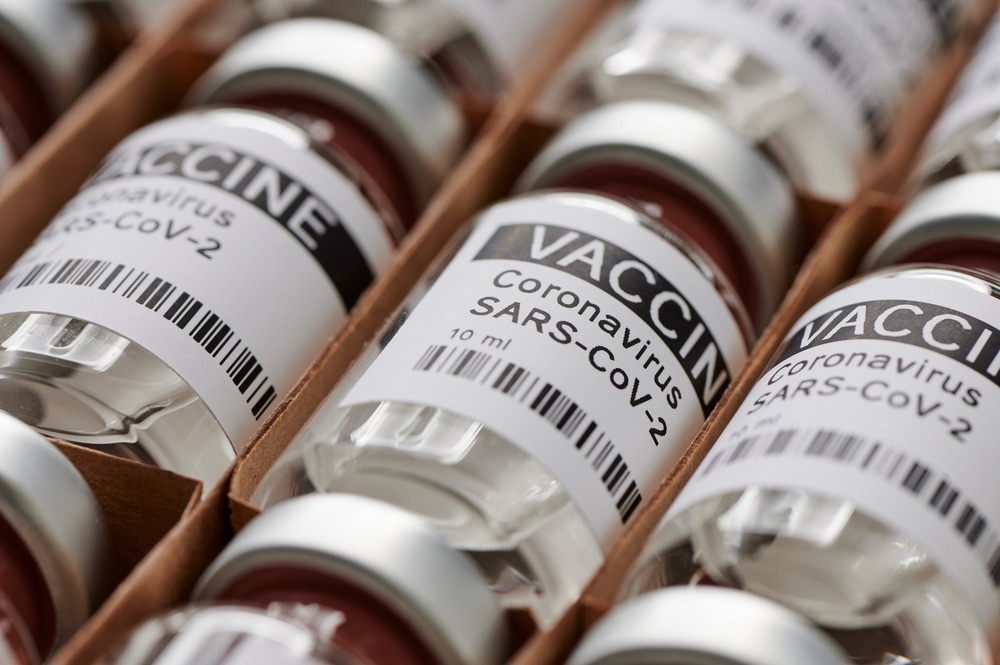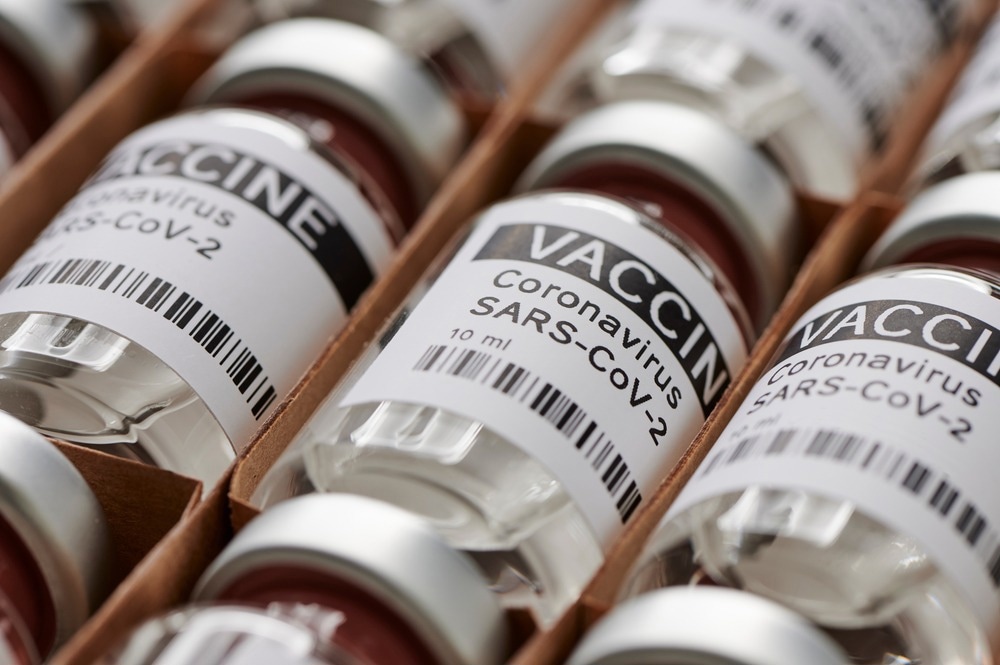
A recent study posted to the medRxiv* preprint server suggests that repeated vaccination at frequent intervals might improve coronavirus disease 2019 (COVID-19) vaccine efficacy and the trajectory of the pandemic.
 Study: The impact of vaccination frequency on COVID-19 public health outcomes: A model-based analysis. Image Credit: M-Foto/Shutterstock
Study: The impact of vaccination frequency on COVID-19 public health outcomes: A model-based analysis. Image Credit: M-Foto/Shutterstock
Background
COVID-19 vaccines, developed in record time and speed, have shown significant efficacy in preventing severe acute respiratory syndrome coronavirus 2 (SARS-CoV-2) infection, symptomatic disease, hospitalization, and death at the initial phase of a worldwide vaccine deployment.
Despite robust efficacy against the wildtype strain of SARS-CoV-2, almost all COVID-19 vaccines have shown significantly reduced efficacy against emerging SARS-CoV-2 variants that exhibit improved transmissibility and immune evasion capabilities. The greatest reduction in vaccine efficacy has been observed against SARS-CoV-2 variants of concern (VOCs), including the Alpha, Beta, Gamma, Delta, and Omicron VOCs.
In an attempt to increase vaccine efficacy, as well as achieve a robust and durable neutralizing antibody response, booster vaccine doses have been introduced in most countries throughout the world. Real-world studies have shown that booster doses are effective against VOCs.
In the current study, scientists use an agent-based modeling framework coupled with the outputs of a population-level pharmacokinetic model of neutralizing antibody responses to explore the relationship between booster frequency and vaccine efficacy.
More specifically, the scientists examine population heterogeneity in vaccine-mediated protection against infection over time and the impact of viral immune evasion on vaccine efficacy. This information was subsequently used to formulate strategies for improving vaccine efficacy by altering dosing intervals.
Impact of booster frequency on vaccine efficacy
Assuming that 50% of the population received regular boosters, the study model projected infection frequency and mortality risk among vaccinated and unvaccinated individuals.
According to the model estimates, individuals vaccinated with one booster dose were expected to experience an average of 1.5 infections each year, whereas unvaccinated individuals were predicted to experience more than two infections each year. The risk of death was predicted to be two times higher among unvaccinated individuals as compared to boosted individuals.
Drug Discovery eBook

Infection frequency was predicted to decrease with the induction in booster frequency. Individuals vaccinated with four booster doses were not expected to be infected with SARS-CoV-2 at all in one year. Over a 10-year simulation period, no infection was observed in 80% of these individuals.
A higher than 0.1% annual risk of death was predicted in 2% of four dose-boosted individuals. Comparatively, about 15% of unvaccinated individuals were predicted to have the same death risk.
Frequency of breakthrough infection
Regarding breakthrough infections among boosted individuals, about 17% of four dose-boosted individuals were predicted to be infected at any frequency over a period of 10 years. Similarly, about 10% of these individuals were expected to become infected at least every other year.
A short antibody half-life of fewer than 50 days was identified as a major risk factor for breakthrough infections. These infections were found to significantly increase the risk of death. According to the model predictions, six vaccine doses per year could reduce the risk of infection in a high-risk population.
Booster vaccination and omicron transmissibility
High adherence to frequent boosting significantly reduced the pandemic impact at the population level.
Considering the highly transmissible SARS-CoV-2 Omicron variant, about 90% adherence to booster doses every three months was predicted to completely inhibit its spread.
In a condition where the viral spread is not inhibited, increased vaccine coverage and frequency were predicted to considerably reduce the total number of annual deaths.
Booster vaccination and antibody kinetics
Since the Moderna COVID-19 vaccine induces a less durable antibody response than natural infection, the scientists assumed that future COVID-19 vaccines would have equal or higher efficacy than natural infection in terms of inducing a robust and durable antibody response.
Only three booster doses of such future vaccines in a year were expected to provide complete protection against infection among vaccinated individuals.
By simulating a condition similar to the Delta wave in the United States, the scientists suggested that boosting only 48% of Americans who had received the primary vaccination by the summer of 2021 could have significantly reduced the spread of this deadly VOC.
Study significance
The current study suggests that repeated boosters at frequent intervals could improve COVID-19 vaccine efficacy and control the pandemic trajectory. Nevertheless, clinical studies on the safety and efficacy of repeated vaccination are needed to confirm the predictions made in this study.
*Important notice
medRxiv publishes preliminary scientific reports that are not peer-reviewed and, therefore, should not be regarded as conclusive, guide clinical practice/health-related behavior, or treated as established information.
- Stoddard, M., Yuan, L., Sarkar, S., et al. (2023). The impact of vaccination frequency on COVID-19 public health outcomes: A model-based analysis. medRxiv. doi:10.1101/2023.01.26.23285076
Posted in: Medical Science News | Medical Research News | Medical Condition News | Disease/Infection News | Healthcare News | Pharmaceutical News
Tags: Antibody, Coronavirus, Coronavirus Disease COVID-19, Efficacy, Frequency, Mortality, Omicron, Pandemic, Public Health, Respiratory, SARS, SARS-CoV-2, Severe Acute Respiratory, Severe Acute Respiratory Syndrome, Syndrome, Vaccine

Written by
Dr. Sanchari Sinha Dutta
Dr. Sanchari Sinha Dutta is a science communicator who believes in spreading the power of science in every corner of the world. She has a Bachelor of Science (B.Sc.) degree and a Master's of Science (M.Sc.) in biology and human physiology. Following her Master's degree, Sanchari went on to study a Ph.D. in human physiology. She has authored more than 10 original research articles, all of which have been published in world renowned international journals.
Source: Read Full Article